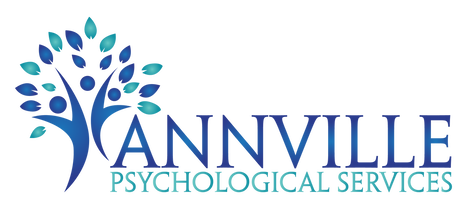What Works for ADHD? A Guide to Effective Treatment
What is ADHD?
Attention Deficit Hyperactivity Disorder (ADHD) is a neurodevelopmental disorder characterized by problems with self-regulation of behavior and emotions. A neurodevelopmental disorder is one that shows up early in development-before adolescence-and is brain-based. In other words, ADHD is caused by nature, not nurture. It is not due to poor parenting or teaching, video games, cell phones, too much sugar, or just being lazy.
What Does Not Work?
Ethical practice requires that clinicians do not oversell what therapy can accomplish. Please be aware that there is no individual therapy or specific diet for children or teens that has been shown to significantly improve the core symptoms (hyperactivity, impulsivity, and lack of focus) of ADHD. Psychological interventions for ADHD focus on changing the environment and expectations of caregivers to promote optimal functioning. Most children with ADHD will continue to have symptoms into adulthood- it is not something most people outgrow. In addition, Play therapy, animal-assisted therapy, and individual talk therapy with children are not evidence-based treatments for ADHD.
What Does Work?
Medication and behavior therapy are the gold standards of treatment for ADHD. There are a variety of medications that are helpful in treating ADHD. Research shows that the majority of people with ADHD show significant benefits from medication and side effects are well tolerated. Behavior therapy focuses on helping parents, teachers, and other caregivers to structure the environment in a way that helps the child with ADHD to function optimally. Examples of behavior therapy include helping parents to anticipate problem behaviors, developing reasonable expectations, planning for how to respond to positive and negative behaviors, knowing how to use effective reminders and consequences, and helping with organization.
Planning and Organizational Skills Training for Teens with ADHD. There are several evidence-based programs that have been shown to significantly improve executive functioning skills mainly related to homework. Examples include the Sprich-Safren Program, The HOPS Program, and the STAND Program (scroll over each program for more information). Skills include tracking, managing materials for school/work, time management, and task planning.
Cognitive Behavioral Therapy (CBT). This includes a wide range of interventions designed to help older children and teens with issues related to ADHD, including anxiety, depression, family and peer conflict, problem solving, and communication.
Exercise. There is some evidence that regular exercise can improve symptoms of ADHD. While the research is still ongoing, the benefits of exercise are well-documented for mood and other areas of functioning, and we enthusiastically recommend it.
What is ADHD?
Attention Deficit Hyperactivity Disorder (ADHD) is a neurodevelopmental disorder characterized by problems with self-regulation of behavior and emotions. A neurodevelopmental disorder is one that shows up early in development-before adolescence-and is brain-based. In other words, ADHD is caused by nature, not nurture. It is not due to poor parenting or teaching, video games, cell phones, too much sugar, or just being lazy.
What Does Not Work?
Ethical practice requires that clinicians do not oversell what therapy can accomplish. Please be aware that there is no individual therapy or specific diet for children or teens that has been shown to significantly improve the core symptoms (hyperactivity, impulsivity, and lack of focus) of ADHD. Psychological interventions for ADHD focus on changing the environment and expectations of caregivers to promote optimal functioning. Most children with ADHD will continue to have symptoms into adulthood- it is not something most people outgrow. In addition, Play therapy, animal-assisted therapy, and individual talk therapy with children are not evidence-based treatments for ADHD.
What Does Work?
Medication and behavior therapy are the gold standards of treatment for ADHD. There are a variety of medications that are helpful in treating ADHD. Research shows that the majority of people with ADHD show significant benefits from medication and side effects are well tolerated. Behavior therapy focuses on helping parents, teachers, and other caregivers to structure the environment in a way that helps the child with ADHD to function optimally. Examples of behavior therapy include helping parents to anticipate problem behaviors, developing reasonable expectations, planning for how to respond to positive and negative behaviors, knowing how to use effective reminders and consequences, and helping with organization.
Planning and Organizational Skills Training for Teens with ADHD. There are several evidence-based programs that have been shown to significantly improve executive functioning skills mainly related to homework. Examples include the Sprich-Safren Program, The HOPS Program, and the STAND Program (scroll over each program for more information). Skills include tracking, managing materials for school/work, time management, and task planning.
Cognitive Behavioral Therapy (CBT). This includes a wide range of interventions designed to help older children and teens with issues related to ADHD, including anxiety, depression, family and peer conflict, problem solving, and communication.
Exercise. There is some evidence that regular exercise can improve symptoms of ADHD. While the research is still ongoing, the benefits of exercise are well-documented for mood and other areas of functioning, and we enthusiastically recommend it.
